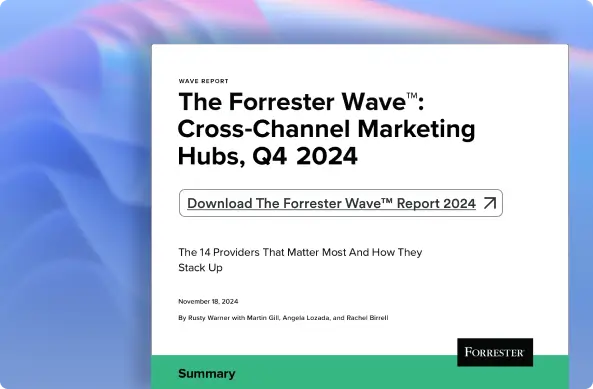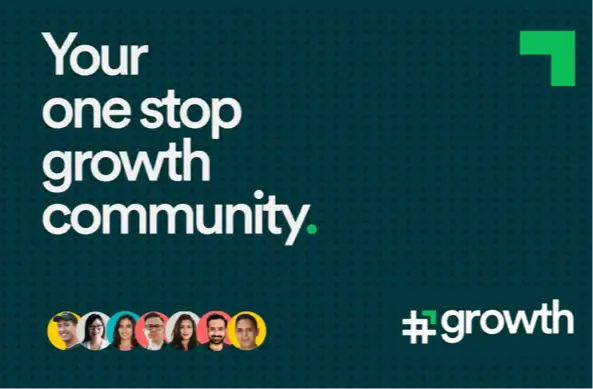5 Customer Engagement Trends for Fintech Brands in 2023

Reading Time: 4 minutes
The BFSI (Banking, financial services, and insurance) and the fintech industry, in general, are currently undergoing new development. A transformation into a new era ushering in digital services. This is a process hastened by Covid 19. During the coronavirus pandemic, the fintech industries had to develop innovations to continue and enhance customer engagement, and they achieved it digitally.
From this, we can tell that the fintech industry is on the verge of a profound transformation into a digital world where brands will use technologies in transactions and payments, loans, insurance, and wealth management. Regardless, we can acknowledge a gap between the fintech industry and delivering optimum digital services in consumer engagement. However, based on the result of their performance, we may see them achieve this in 2023.
Even before Covid, there has been a lot of pressure on the fintech industry to provide better customer engagement and usability. The fintech industry has yet to offer in-person transactions, which adds more pressure to multiple brands across the industry to enhance speed, ability, and online transactions.
Now for the moment of truth – 5 customer engagement trends for the fintech industry. Let’s get to it without taking any more of your time.
Referral Marketing Programs Continue to Grow
Referrals have always been an effective approach to attracting and generating new and loyal customers. In addition, consumers tend to trust recommendations from family and friends more than any other advertisement.
Let’s examine a practical scenario of such a situation. Suppose you see an Autoplay video advertising a particular product on your Instagram feeds and a friend posting on their Instagram about how much they love that product. In that case, whose recommendation will push you to try that product? That of your friend. Consumers get bored by ads, and sometimes, it gets frustrating. Therefore, referral marketing is critical.
Some of the biggest brands in the fintech industry today are implementing a referral marketing strategy that channels the ability to reciprocate consumer trust to grow their business and build brand credibility. Robinhood, a fintech giant, utilized referral marketing in its early days and generated almost a million customers for the company before it officially launched in 2014.
Lack of Financial Knowledge and Understanding
Today, many customers struggle with financial literacy, and a lack of financial literacy on the part of customers may slow down the success of a brand. Financial literacy may refer to various financial concepts and skills. However, in a more acceptable term, it involves understanding and implementing multiple financial skills like saving, budgeting, investing, insurance, etc. In addition, this critical skill is not common among today’s customers.
A financial wellness survey conducted after Covid-19 by eMoney, especially – a wealth management company, explains that lack of financial literacy and absence of good, sound, and reliable financial advice are significant barriers to a consumer’s financial wellness. To this end, a fintech brand that offers consumers services to help them in these areas has the upper hand in the industry over other competitors.
More so, 78% of adults in the United States claim that professional financial advice would significantly impact their financial wellness. Brands that focus on helping consumer stands to benefit a lot. Most adults in the millennial generation use fintech tools in their daily lives, but they need to gain more knowledge of financial literacy.
Notably, a lack of financial literacy results from limited or no access to resources than a lack of interest. This is an affirmation backed by a survey involving only millennials, where 68% accepted to participate in a financial literacy class. Furthermore, it was discovered that economic anxiety and stress are other factors that affect financial literacy.
Individuals who lack financial literacy tend to be more vulnerable to economic mayhem. Fintech industries can avoid this by providing solid and critical financial literacy foundations while improving customer engagement.
These foundations can improve the financial lives of an individual in terms of savings, debt management, retirement plans, etc. fintech companies can empower their customers with financial literacy ebooks, audiobooks, or podcasts. They can also create financial literacy content like articles, journals, and webinars.
Customers Desire Personalized Services
Consumers tend to support brands that make them feel they are more than just numbers. More so, brands with personalized services have a more extensive network of consumers. In a survey conducted by Epsilon, a management consulting firm, 80% of the participants said they would prefer to patronize a brand that offers personalized services. In other words, they would buy from a brand that design and produce services to meet their requirement.
You can connect to consumers by offering personalized services. It is also a strategy for customer retention, and providing a custom solution to their needs translates to an approximately 10% increase in revenue. According to NCR, personalization is primarily about delivering value to customers and not just selling different products to various consumers.
Furthermore, offering personalized fintech services connects your brand to a broader category of audiences, given that you provide customized financial solutions based on several criteria rather than offering a solution that fits all. In addition, using AI in the fintech industry simplifies providing personalized services to consumers.
Seamless Banking Across Apps
The fintech industry has always wanted its customers to have more control over their finances. However, many still need to take action to ensure they reach this goal.
Many retail fintech brands create different apps for different functions instead of creating a seamless one where customers can access all their services and products. Apps like neobanks, lenders, and marketplaces provide a better customer experience than products to customers.
However, fintech companies are after self-driving funds, which means the consumer input what they want, and the app provides a fast and safe solution. Therefore unifying experiences across every platform is critical in achieving this goal. With the utilization of AI, fintech brands will be able to reach this goal at a swift pace.
Cashless Payment Is Becoming a Trend
More than 85% of Americans have a smartphone. Therefore, it only makes sense that most fintech consumers migrate to more convenient payment methods – completing transactions from their smartphones via mobile applications.
By 2030, the digital transaction rate is projected to triple its current rate. To this end, only fintech brands that offer digital transaction solutions like digital wallets will remain relevant in the industry in the next decade.
In addition, providing digital transaction solutions will make fintech companies more financially comprehensive. According to the Federal Reserve Bank of Atlanta, providing low-income cash customers with access to digital transaction solutions independent of traditional bank accounts is an effective strategy for endorsing economic mobility.
Wrap Up
Today, there are more consumers online with greater expectations. To this end, fintech brands must deliver experiences and solutions more significant than the expectations of their consumers, or they risk customer churn. More so, they must be ready to address matters that may arise due to the rapid change to the digital plane.













